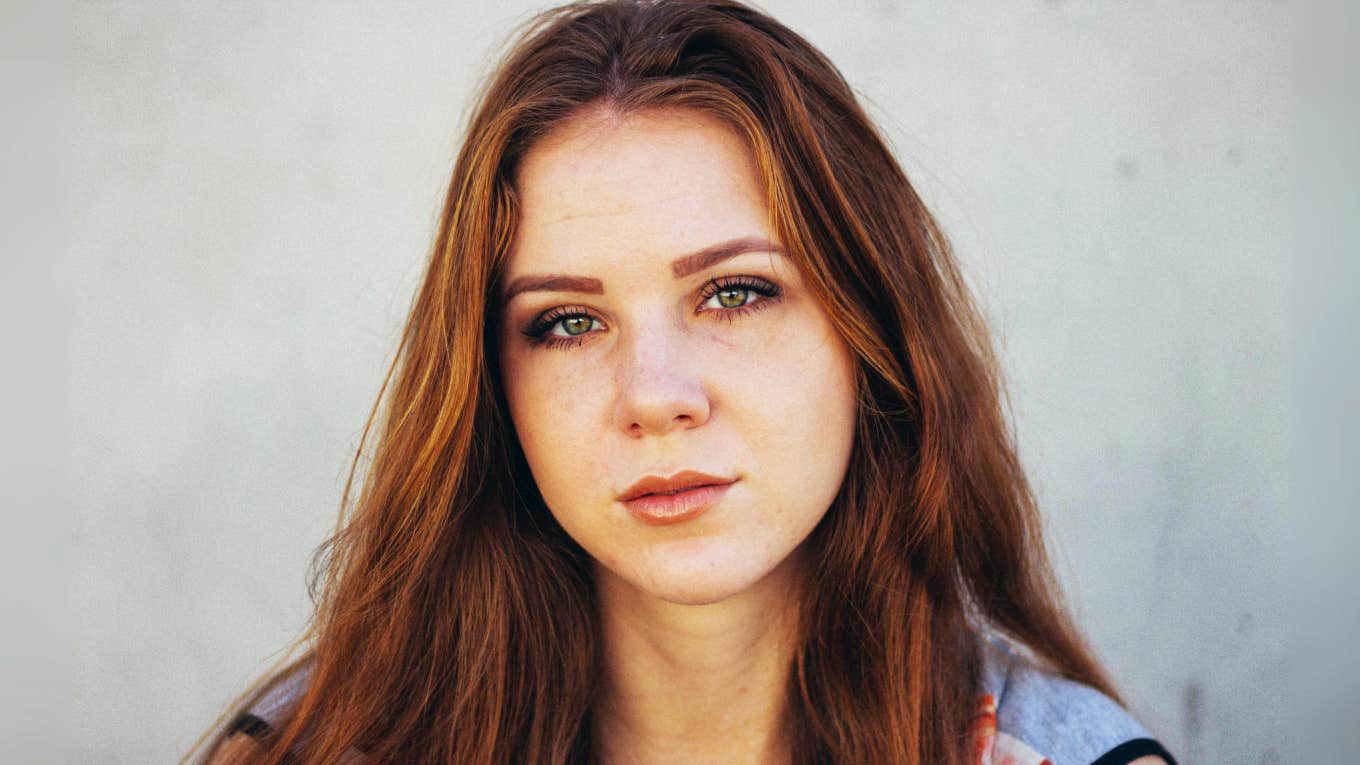Psychology Says If You Stay Attached To These 8 Things, You'll Never Move Forward In Life
Don't sabotage your own happiness.
 Heitor Verdi | Pexels
Heitor Verdi | Pexels So much of our inner turmoil is simply the result of conducting a life we don’t inherently agree with because we have accepted an inner narrative of “normal” and “ideal” without even realizing it.
Simply, there are a few fundamentals of happiness, decision-making, instinct-following, and peace-finding that we don’t seem to understand. Luckily, you can identify the daily habits and subconscious behaviors that stop you from living your best life.
If you stay attached to these 8 things, you'll never move forward in life:
1.Outdated ideas of happiness.
 New Africa / Shutterstock
New Africa / Shutterstock
Though you believe that creating your best possible life is a matter of deciding what you want and then going after it, your brain can only perceive what it knows. So, when you choose what you want for the future, you’re actually just re-creating a solution or an ideal of the past.
Ironically, when said ideas don’t come to fruition (things never look the way we think they will), you suffer because you think you’ve failed when, really, you’re most likely experiencing something better than you could have chosen for yourself at the time.
Moral of the story: Living in the moment isn’t a lofty ideal reserved for the zen and enlightened; it’s the only way to live a life that isn’t infiltrated with illusions; it’s the only thing your brain can actually comprehend.
2.Treating success as a destination.
 Prostock-studio / Shutterstock
Prostock-studio / Shutterstock
You anticipate the present moment because you believe that success is somewhere you "arrive," accidentally convincing yourself that any given moment is your life when it's just a moment in your life.
Because we’re wired to believe that success is somewhere we get to — when goals are accomplished, and things are completed — we’re constantly measuring our present moments by how “finished” they are, how good the story sounds, and how someone else would judge the summary.
If at any point you find yourself thinking: “Is this all there is?” you’re forgetting that everything is transitory. There is nowhere to “arrive.” The only thing you’re rushing toward is death.
Accomplishing goals is not a success. How much you learn and enjoy and expand in the process of doing them is. Frequently taking a snapshot of your life to evaluate your happiness can potentially hold you back by causing a hyper-focus on momentary feelings, leading to a distorted perception of overall well-being, and potentially hindering your ability to fully engage in the present moment due to constant evaluation, rather than simply experiencing life. A 2023 review published in the Encyclopedia of Mental Health found this is often linked to the hedonic adaptation concept, where people tend to adjust to positive experiences quickly, making them seem less significant over time.
3.Doing things out of fear.
 Perfect Wave / Shutterstock
Perfect Wave / Shutterstock
When you consider doing something you truly love and are invested in, you'll feel an influx of fear and pain, mostly because it involves vulnerability. But that's to be expected and is a normal part of life.
When it comes to making decisions, you have to know that bad feelings aren't deterrents. They are indicators that you want to do something, but it scares you, which means it is the thing that is most worth doing.
Not wanting to do something would make you feel indifferent about it. Fear = interest.
4.Creating unnecessary drama and manufacturing problems.
 Yuri A / Shutterstock
Yuri A / Shutterstock
The pattern of unnecessarily creating a crisis in your life is actually an avoidance technique. It distracts you from having to be vulnerable, held accountable, or face whatever you’re afraid of.
You’re never upset for the reason you think you are. At the core of your desire to create a problem is simply the fear of being who you are and living the life you want. Avoidance behavior or fear of the unknown occurs when individuals create unnecessary problems or obstacles in their lives out of a deep-seated fear of taking risks, facing uncertainty, or stepping outside their comfort zone. This fear ultimately hinders personal growth and fulfillment. A 2011 study concluded that past experiences of failure or adverse events can lead individuals to develop a belief that they have no control over their lives, causing them to passively avoid challenges and create problems in their minds rather than actively addressing them.
5.Rigid belief systems.
 TetianaKtv / Shutterstock
TetianaKtv / Shutterstock
Real change doesn’t come from forced thinking but from transformative, eye-opening experiences. A belief is what you know to be true because experience has made it evident to you.
If you want to change your life, change your beliefs. If you want to change your beliefs, go out and have experiences that make them real to you. Not the opposite way around.
6.Seeing problems as roadblocks.
 Ground Picture / Shutterstock
Ground Picture / Shutterstock
If you haven’t heard it before, Marcus Aurelius sums this up well: “The impediment to action advances action. What stands in the way becomes the way.” Ryan Holiday explains it with even greater grace and economy: “The obstacle is the way.”
Simply running into a “problem” forces you to take action to resolve it. That action leads you down the path you had ultimately intended to go anyway, as the only “problems” in your life come down to how you resist who you are and how your life naturally unfolds.
Perceiving problems as roadblocks to achieving goals can significantly hinder progress by triggering negative emotions like frustration and discouragement. A study published in the Journal of Research in Personality concluded this could lead individuals to give up easily or avoid taking action altogether, creating a self-fulfilling prophecy in which the perceived obstacle becomes a barrier to success. This phenomenon is often linked to a fixed mindset, where challenges are seen as insurmountable rather than opportunities for growth.
7.Letting the past define you.
 fizkes / Shutterstock
fizkes / Shutterstock
Because experience is always multidimensional, you can recall a variety of memories, experiences, feelings, and “gists” — and what you choose is indicative of your present state of mind.
So many people get caught up in allowing the past to define them or haunt them simply because they haven't evolved to see that the past didn't prevent them from achieving the life they want. Rather, it facilitated it (see: the obstacle is the way).
This doesn’t mean disregarding or glossing over painful or traumatic events but recalling them with acceptance and incorporating them into the storyline of your personal evolution.
8.Trying to change others.
 fizkes / Shutterstock
fizkes / Shutterstock
Most negative emotional reactions are when you identify a disassociated aspect of yourself.
Your “shadow selves” are the parts of you that, at some point, you were conditioned to believe were “not okay,” so you suppressed them and have done everything in your power not to acknowledge them. You don’t actually dislike these parts of yourself, though — you absolutely love them.
According to an APA article, trying to change other people's situations or behaviors while feeling angry, especially if that anger stems from a deeper self-recognition of your issues, can significantly hinder your personal growth and prevent you from addressing the root cause of your discomfort. This can essentially hold you back from positive change.
So when you see somebody else displaying one of these traits, it infuriates you — not because you inherently dislike it, but because you have to fight your desire to fully integrate it into your whole consciousness.
The things you love about others are the things you love about yourself. The things you hate about others are the things you cannot see in yourself.
Brianna Wiest is a writer, editor, author, and regular contributor to publications such as Huffington Post, Forbes, Teen Vogue, Thought Catalog, and many others. She's the author of 101 Essays That Will Change The Way You Think, and other collections of poetry and prose.
